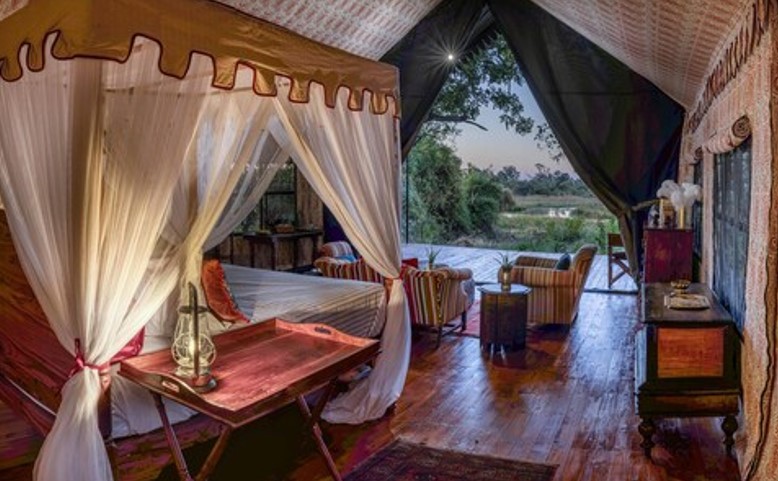Thinking of Holiday in Africa
Post By Diaspoint | September 3, 2023

I’ve covered every corner of Botswana and this is by far the most beautiful
By Brian Jackman
Our safari veteran reveals how the notorious game-proof fences of the 1980s kept visitors away from his favourite spot – until now
The floods came late to Botswana this year, swirling down Africa’s third largest river to replenish the maze of channels surrounding Duke’s Camp on the northern fringes of the Okavango Delta. How joyful is the sight of water in a thirsty land, a miracle enacted every year when rains falling on the faraway mountains of Angola fan out across the bone-dry Kalahari to create the world’s biggest freshwater oasis.
They arrive, paradoxically, in the middle of the dry season, in the African winter, replenishing 10,000 square miles of papyrus swamps and hippo pools among the drowning floodplains. Pied kingfishers haunt its serpentine channels. Otters hunt among its lily pads, and elephants browse belly-deep in the amber water.
At night, painted frogs as exquisite as Fabergé jewels chime in the reeds, like ice cubes clinking in a glass. And sometimes, if you are lucky, you might hear the eerie cry of a fishing owl – a sound likened to that of a lost soul falling into a bottomless pit.
Until quite recently the area in which Duke’s Camp is situated was off limits for visitors, largely due to the erection of game-proof fences in the 1970s and 1980s. They were put up to protect Botswana’s beef export trade at the insistence of the EU, to prevent buffalo herds and other ungulates spreading foot-and-mouth disease in the rangelands beyond the Okavango Delta. But over the years they have become badly neglected. Termites devoured the wooden posts and elephants bulldozed gaps in the wire, allowing the wild herds to reclaim their old migration routes.
Space, privacy and an abundance of game, including the predators – everything was here for a perfect safari except a comfortable camp to match the idyllic surroundings. So, like nature itself, which is always ready to exploit a vacant niche, eco-tourism moved in.
Read More from original source
